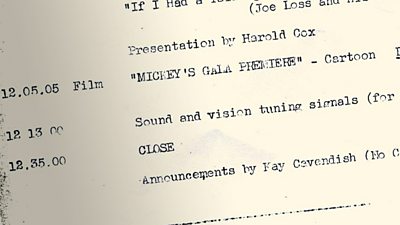On 1 September 1939, with war looking unavoidable, the ����ý took steps to prepare for the conflict. Shortly after noon the television service was unceremoniously shut down, following the cartoon Mickey’s Gala Premiere. It was said that the strong signal from the transmitter at Alexandra Palace would provide a navigational aid for enemy aircraft. At the same time the radio service was re-organised, with the National and Regional Services brought into one Home Service. While television remained silent during the war, ����ý Radio – after an initial hiccup when the airwaves were filled with organ music - provided a welcome distraction.
Only 20,000 households had television sets, and as television programmes were expensive to produce, it was felt the resources saved could be better used elsewhere during wartime. Fifty engineers were redeployed to work on radar projects.
Television started again on 7 June 1946, with a brief opening ceremony and a repeat of the Mickey Mouse cartoon that preceded the closedown. The post-war television audience was almost non-existent and - although the service was a monopoly – the ����ý had to work hard to convince sceptics it could offer an alternative to the radio, which had proved so successful during the war.
World War 2 and the ����ý
-
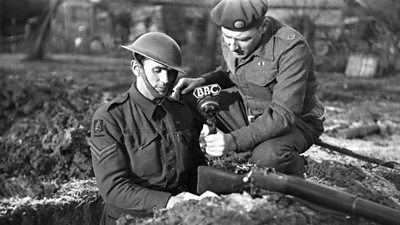
The ����ý at War
The ����ý reinvented itself during World War 2 and public perception of the institution changed dramatically. Explore its expansion into a global media network, the changing nature of its programming, and the way that war re-defined its relationship with both government and audiences. -

Chamberlain returns from Munich - 30 September 1938
Prime Minister Neville Chamberlain returns with a paper signed by Adolf Hitler. -
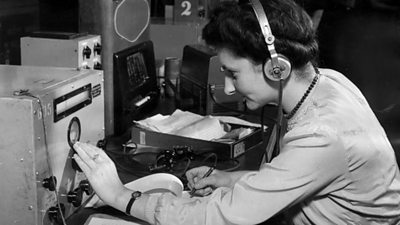
����ý Monitoring founded - 26 August 1939
As part of the intelligence war effort, ����ý Monitoring gathered and interpreted international news from across the World. -
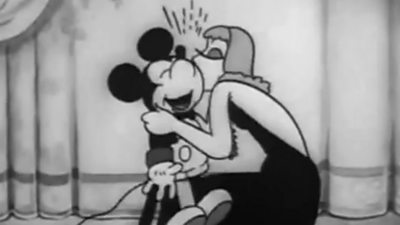
Close down of Television service for the duration of the War - 1 September 1939
Mickey Mouse is the last star seen on ����ý Television for six years as the TV service is shut down for the duration of WW2. -
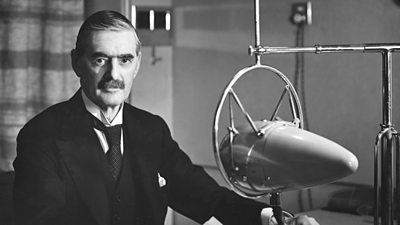
Chamberlain announces Britain is at war with Germany - 3 September 1939
"I have to tell you now that no such undertaking has been received, and that consequently this country is at war with Germany." -
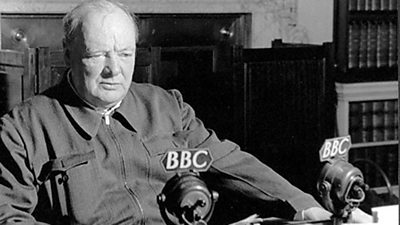
Winston Churchill's first wartime broadcast - 1 October 1939
Churchill delivers the first of many broadcasts which define the collective memory of WW2. -

De Gaulle's first broadcast to France - 18 June 1940
General Charles de Gaulle broadcast to German occupied France, and rallied the French Resistance to him in London. -
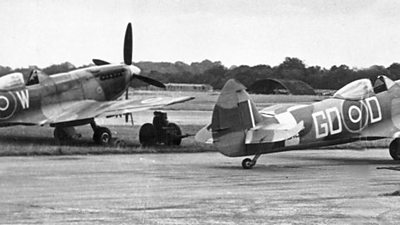
The Battle of Britain - Summer 1940
The ����ý reports on the battle taking place in the skies -
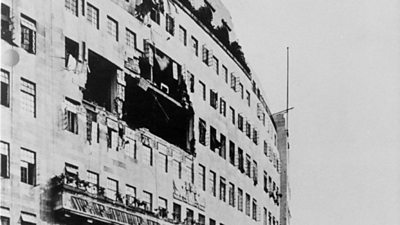
Bombing of Broadcasting House - 15 October 1940
A bomb lands on the ����ý's headquarters, killing 4 men and 3 women. -

The Queen’s Hall destroyed by bombing - 10 May 1941
The Proms loses its home, but rises from the ashes at the Albert Hall. -
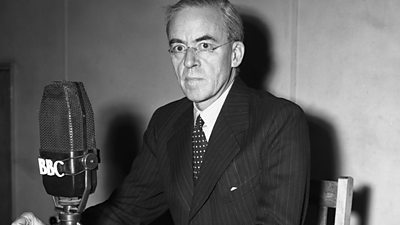
London Calling Europe began - 6 July 1941
London Calling Europe was one of many programmes broadcast by the ����ý to occupied Europe. -
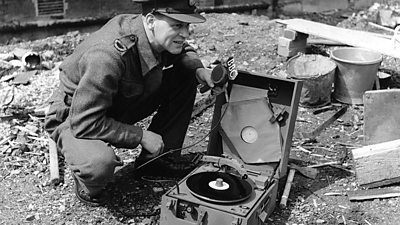
D-Day broadcasts - 6 June 1944
John Snagge announces that "D-Day has come..." as the Allies land on the beaches in Normandy. -

VE Day broadcasts - 8 May 1945
Winston Churchill announced the end of the War in Europe with a speech broadcast from Downing St, but the war in the Far East continues.
September anniversaries
-

Close down of Television service for the duration of the War
1 September 1939 -
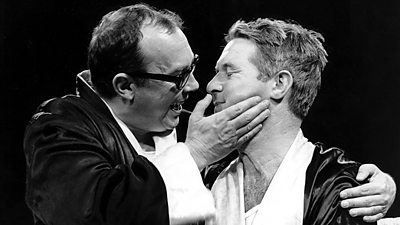
The Morecambe and Wise Show
2 September 1968 -

Chamberlain announces Britain is at war with Germany
3 September 1939 -

Start of first series of Porridge
5 September 1974 -
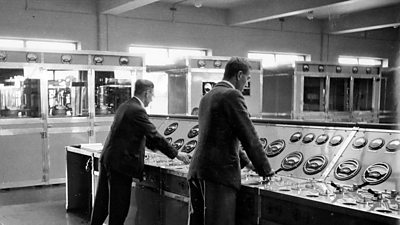
Droitwich transmitter becomes operational
6 September 1934 -
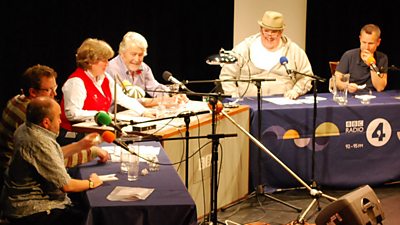
The News Quiz
6 September 1977 -

Casualty
6 September 1986 -
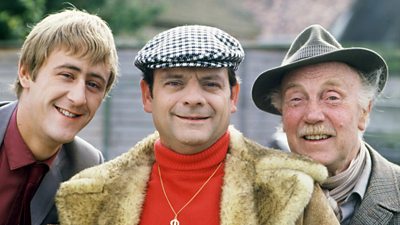
Only Fools and Horses
8 September 1981 -
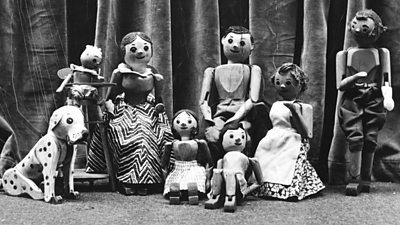
The Woodentops
9 September 1955 -

First live Children's ����ý from 'the Broom Cupboard'
9 September 1985 -
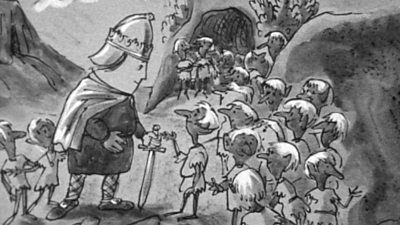
The Saga of Noggin the Nog first transmitted
11 September 1959 -
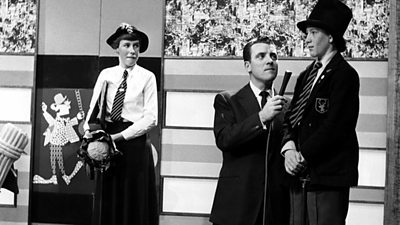
Crackerjack
14 September 1955 -
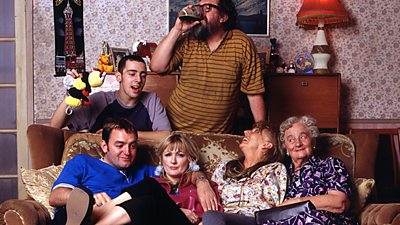
The Royle Family
14 September 1998 -

Opening of ����ý Bristol
18 September 1934 -
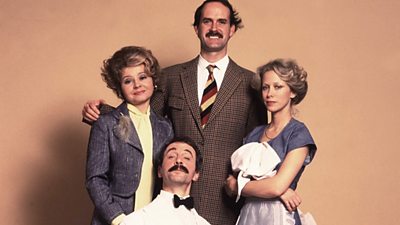
First episode of Fawlty Towers
19 September 1975 -

First episode of I, Claudius
20 September 1976 -

The Old Grey Whistle Test
21 September 1971 -
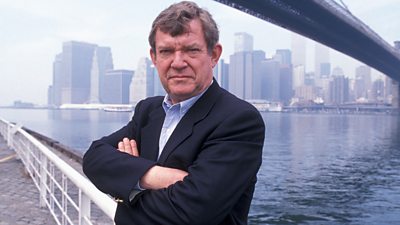
The Shock of the New
21 September 1980 -

CEEFAX: world's first teletext service
23 September 1974 -
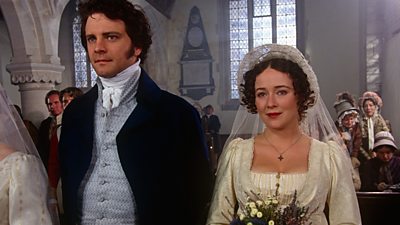
Pride and Prejudice
24 September 1995 -
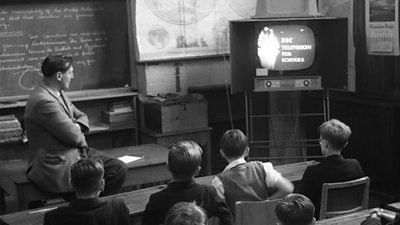
����ý Television for Schools begins
24 September 1957 -
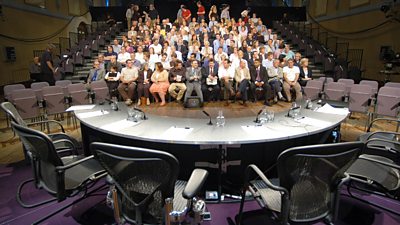
Question Time
25 September 1979 -
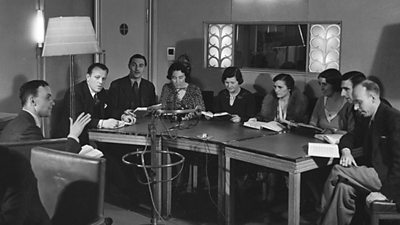
The Epilogue
26 September 1926 -
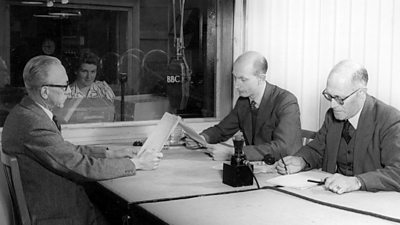
Start of ����ý European Service, News in French, German and Italian
27 September 1938 -

����ý Singers
28 September 1924 -

The beginning of The Third Programme
29 September 1946 -
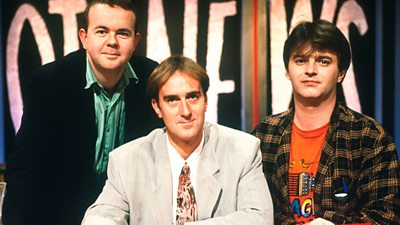
Have I Got News For You
28 September 1990 -
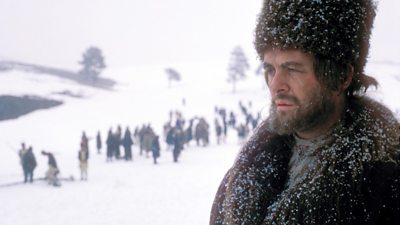
War and Peace
28 September 1972 -

First episode of Come Dancing
29 September 1950 -

Start of Radios 1, 2, 3 and 4
30 September 1967 -

Chamberlain returns from Munich
30 September 1938
